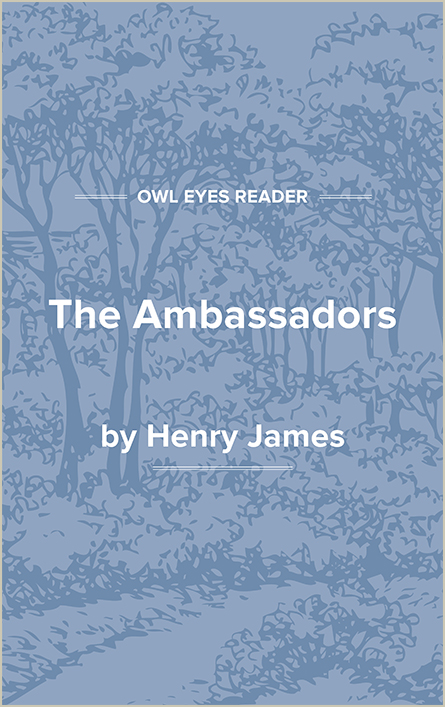Study Guide
Analysis Pages
Henry James Biography
If one wished to create for oneself a background and early life that was appropriate for preparing to be an important and dedicated American novelist during the later years of the nineteenth century and the early years of the twentieth century, one might very well choose just the sort of family and early experience that fate created for Henry James, born in 1843 in New York, New York. The family circumstances were comfortable (his grandfather, William James, had amassed one of the three largest fortunes in New York), and his father, Henry James, Sr.; his mother, Mary Robertson Walsh James; his older brother, William James; and his younger siblings, Garth Wilkinson, Robertson, and Alice, were all lively, articulate, and stimulating. It has been speculated that the very effervescence of his siblings helped to develop in Henry a tendency toward observation rather than participation, a trait that may have contributed to his decision never to marry and certainly helped to lead him to the vocation to which he devoted his life.
Another important feature of James’s youth was his father’s belief in the merit of unsystematic but broadly based education. The future novelist thus enjoyed the benefits of instruction by tutors as well as in excellent European institutions (made possible by a four-year stay, 1855-1858, in Switzerland, England, and France). Early on, the elder Henry James, an unorthodox philosopher and writer, observed that “Harry is not so fond of study, properly so-called, as of reading. He is a devourer of libraries.” That this parent was not insistent on a more traditional attitude toward education is to his credit; though James was largely self-educated (his only true conventional schooling was a brief period at Harvard Law School, in 1862-1863)—resulting in some ignorance of extended areas of knowledge, such as the sciences, and in specialized concentrations, represented by his phenomenally wide reading in nineteenth century fiction but in little literature written before that erA&Mdash;it is generally agreed that he was one of the best informed of the major literary persons of his time.
Apart from several later trips to Europe, which finally led him to the decision to move there in 1875 and to remain there for the rest of his life (except for a number of trips to the United States, where he never established a home), James led, for his first thirty years, a largely domestic life in the family circle. In his early twenties he had decided to become a writer; his initial publication is thought to be an unsigned story that appeared in 1864. This was the first of an endless stream of tales, reviews, essays, and novels (James became so proficient at French that he also translated a few works, which achieved publication); even during the period of his attempts to write plays he was turning out short pieces regularly. He was closely attached to his older brother, William, a relationship that endured until William’s death, in 1910, and to Alice and his cousin, Mary “Minny” Temple, whom James thought to be “the very heroine of our common scene.” This charming young lady may have been the only real romantic love of James’s life—it has been suggested that her death at the age of twenty-four, in 1870, had much to do with James’s resolution never to marry—and he immortalized her in Milly Theale, the ailing heroine of The Wings of the Dove, and perhaps in all the bright, appealing American girls who come to grief in his novels.
James was never very close to his younger brothers, a fact that has been attributed partly to his inability to serve in the Army during the American Civil War (because of “an obscure hurt,” which was probably nothing more dramatic than a back injury—James had a painful back for all of his early adulthood), in which “Wilky” and “Bob” fought, but also to the fact that he was simply temperamentally unsuited to association with these essentially unhappy men, both of whom died...
(The entire page is 1,506 words.)
Owl Eyes subscribers get unlimited access to our expert annotations, analyses, and study guides on your favorite texts. Master the classics for less than $5/month!

